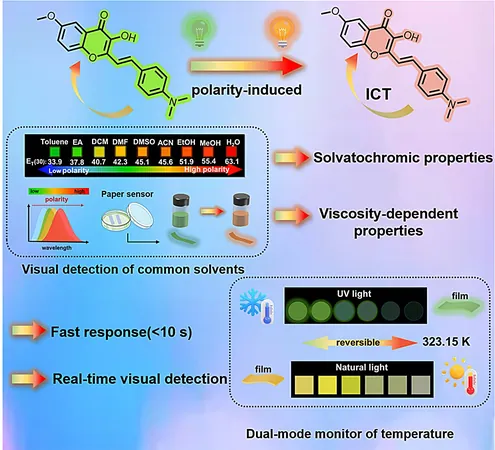
Uncovering the Hidden Risks: Severe Strokes Linked to Key Vascular Factors!
2024-11-23
Author: Emily
Recent research has revealed shocking insights into the risk factors associated with strokes, particularly how certain conditions could greatly increase the chances of experiencing a severe stroke compared to a milder one. This new study shines a spotlight on the pressing need to manage these health risks effectively.
Stroke remains a leading global health concern, ranking as the third leading cause of death worldwide. In fact, a staggering 5.5 million lives are claimed by strokes each year, highlighting the critical importance of understanding and mitigating stroke risk.
Dr. Steve Messe, a professor of neurology at the University of Pennsylvania, elaborates, “A stroke occurs when the brain suffers damage due to vascular issues. This can arise from a blockage—responsible for roughly 80% of strokes in the United States—or from a hemorrhage, which accounts for the remaining 20%.”
Key risk factors identified in the study include hypertension (high blood pressure), atrial fibrillation (an irregular heartbeat), and smoking—all of which are linked to increased severity of strokes. According to the U.S. Centers for Disease Control and Prevention, these factors are crucial in the ongoing fight against stroke and cardiovascular diseases.
The groundbreaking study published in the journal *Neurology* analyzed data from nearly 13,500 patients worldwide, part of the INTERSTROKE study conducted from 2007 to 2015. Participants were assessed using standardized questionnaires that measured their risk factors. Researchers categorized the strokes into severe and non-severe cases using a comprehensive six-point scale based on the level of disability experienced.
Dr. Catriona Reddin, the study's lead author, emphasizes the importance of focusing on modifiable risk factors: “Our findings indicate that high blood pressure, smoking, and atrial fibrillation pose a greater threat for severe strokes compared to milder forms. This reinforces the necessity to manage these risks actively.”
Prior studies have already linked obesity, high blood pressure, and high cholesterol levels to stroke risk, aligning with these latest findings. “Our research underscores that managing stroke-related risk factors is vital, especially for those at higher risk for severe strokes,” Reddin adds.
High blood pressure, often underestimated, can arise from unhealthy lifestyle choices, medical conditions like diabetes and obesity, or even pregnancy. It can wreak havoc on the heart's tissues, leading to irregular heart rhythms that further elevate risks. Dr. Andrew Freeman, a cardiovascular expert, notes, “The risks extend beyond traditional tobacco smoke to include marijuana smoke and even heavily polluted air.”
Preventing stroke requires a proactive approach. Experts recommend adopting a plant-based diet, increasing physical activity, managing stress, fostering positive relationships, and ensuring adequate sleep. Moreover, reducing salt intake, avoiding high-cholesterol foods, and consuming more fruits and vegetables can significantly lower blood pressure.
Staying active is crucial; those who engage in regular physical exercise have been shown to reduce their stroke risk by 25% to 30%. Dr. Freeman also points out that exercise can mitigate stress-related spikes in blood pressure through the release of endorphins.
If you suspect that you or someone else is having a stroke, immediate action is critical. Calling emergency services without delay can be the difference between life and death, as swift medical intervention is essential.
Be vigilant about the warning signs of stroke—remember the acronym FAST: Face drooping, Arm weakness, Speech difficulties, and Time to call emergency services. Staying informed and proactive about stroke risks could save lives!
**Stay educated, stay prepared, and you could be saving a life today!**









 Brasil (PT)
Brasil (PT)
 Canada (EN)
Canada (EN)
 Chile (ES)
Chile (ES)
 España (ES)
España (ES)
 France (FR)
France (FR)
 Hong Kong (EN)
Hong Kong (EN)
 Italia (IT)
Italia (IT)
 日本 (JA)
日本 (JA)
 Magyarország (HU)
Magyarország (HU)
 Norge (NO)
Norge (NO)
 Polska (PL)
Polska (PL)
 Schweiz (DE)
Schweiz (DE)
 Singapore (EN)
Singapore (EN)
 Sverige (SV)
Sverige (SV)
 Suomi (FI)
Suomi (FI)
 Türkiye (TR)
Türkiye (TR)